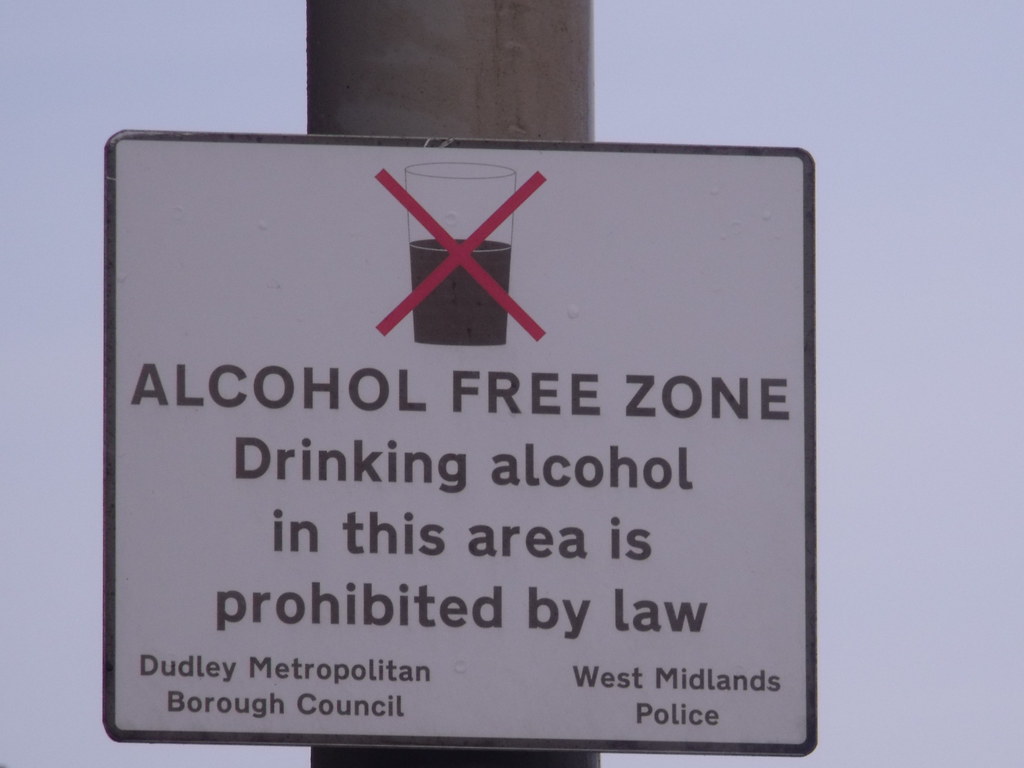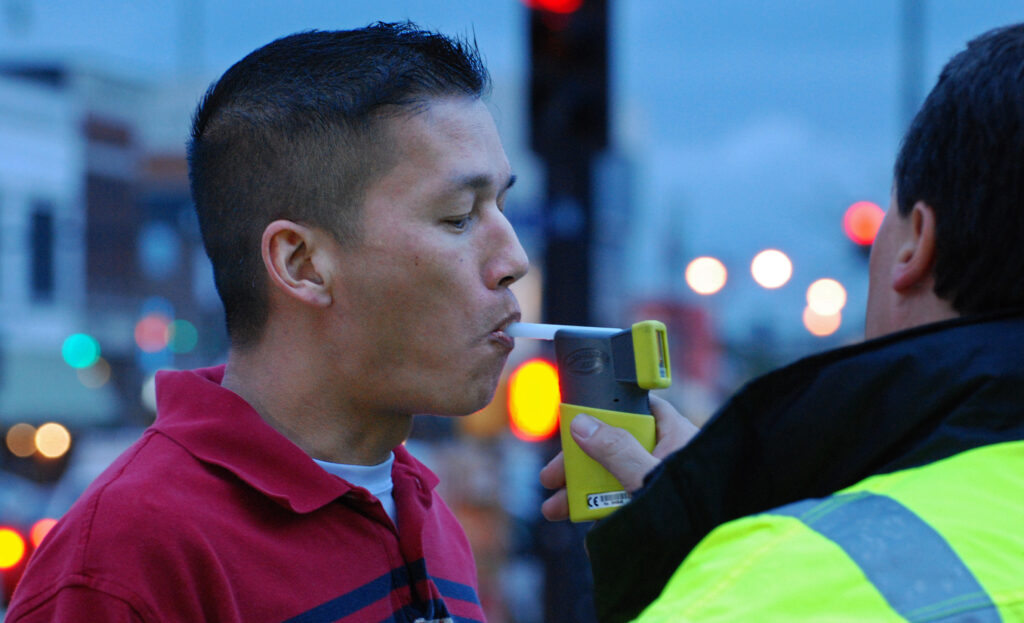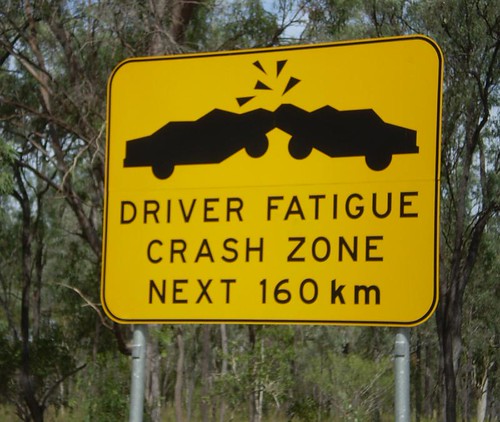
Driving Under the Influence (DUI) is one of the most serious legal offenses a driver can commit, carrying profound consequences that extend far beyond a simple traffic ticket. Yet, despite the widespread public awareness campaigns and severe penalties, a surprising number of misconceptions about DUI laws persist. These myths aren’t just harmless misunderstandings; they can lead to dangerous behaviors, unexpected legal pitfalls, and life-altering repercussions for drivers across all 15 different states where DUI laws are enforced. Understanding the truth behind these common fallacies is not just advisable, it’s absolutely crucial for every responsible motorist.
Navigating the legal landscape of DUI cases can be daunting, especially when surrounded by inaccurate information that can mislead individuals and influence their decisions during critical moments. From varying legal thresholds for Blood Alcohol Concentration (BAC) across states like California and New York compared to Texas or Florida, to nuances in how “operating” a vehicle is defined, the intricacies demand clarity. Our goal is to provide you with direct, useful advice and solutions, breaking down complex topics into simple, actionable points so you can improve various aspects of your life, starting with road safety and legal awareness.
In this in-depth guide, we’re going to tackle some of the most pervasive and dangerous myths surrounding DUI laws head-on. By shedding light on the facts and offering expert insights, we aim to promote safer driving practices, better awareness of your rights, and help you avoid serious legal trouble. Let’s separate fact from fiction and equip you with the knowledge you need to make informed decisions and protect your future.

1. **Myth: DUI Laws Only Apply to Alcohol**One of the most common and dangerous misconceptions circulating among drivers is the belief that DUI laws exclusively target alcohol consumption. Many assume that as long as they haven’t been drinking, they are immune to impaired driving charges. This widespread misunderstanding often leads individuals to overlook the potent effects of other substances that can equally impair their ability to operate a vehicle safely.
In reality, DUI laws cast a much wider net. The context explicitly states, “DUI can include impairment from prescription medications, over-the-counter drugs, and illegal substances like marijuana.” This means that if any substance, regardless of its legality or how it was obtained, affects your driving capabilities, you are at risk of a DUI charge. The focus of the law is on impairment, not just the type of substance consumed.
Drugs like opioids, anti-anxiety medications, and even certain over-the-counter cold and flu remedies can significantly impair judgment, reaction times, and coordination. These effects are often comparable to, or even worse than, those caused by alcohol. Law enforcement officers are trained to recognize signs of impairment that extend beyond just alcohol, and judicial systems are increasingly equipped to prosecute these offenses just as aggressively as alcohol-related DUIs.
To stay safe and avoid legal trouble, always read warning labels on prescription and over-the-counter medications for potential side effects that could affect driving. If you’re unsure, consult your doctor or pharmacist. The core principle remains: if you feel impaired by any substance, do not get behind the wheel. Planning ahead by designating a sober driver or arranging alternative transportation is always the smartest move.

2. **Myth: You Can’t Get a DUI if You’re Under the Limit**Another deeply ingrained misconception is the idea that the 0.08% Blood Alcohol Concentration (BAC) limit is an absolute shield against a DUI charge. Many people mistakenly believe that as long as their BAC registers below this threshold, they are legally safe to drive, regardless of how they feel or how they are actually driving. This belief can lead to a false sense of security and extremely dangerous decisions.
However, the legal limits are not the sole determinant of impairment. As the provided context clarifies, “Even if you are under the limit, if an officer believes you are impaired or your driving is affected, you can still be charged with DUI.” Many states have laws that allow for DUI charges based on observable impairment, even if your BAC is below 0.08%. Factors like swerving, delayed reactions, or slurred speech can be sufficient for an officer to make an arrest.
Individual factors play a significant role in how alcohol affects a person. Age, weight, metabolism, medications, and even recent food intake can all influence how quickly and severely one becomes impaired. The context points out, “For example, someone who rarely drinks may be more visibly impaired at a BAC of 0.05% than someone who drinks more frequently.” In fact, impairment can begin at BAC levels as low as 0.02%, significantly impacting judgment, reaction time, and decision-making ability.
The practical takeaway is clear: your personal feeling of “being fine” or staying below a specific BAC number isn’t enough. Always prioritize safe driving conditions. If you’ve consumed any alcohol or impairing substance, even if it’s a small amount, consider its potential effects on your driving ability. When in doubt, it’s always best to err on the side of caution and find an alternative way home.

3. **Myth: You Can Refuse a Breathalyzer Test Without Consequences**Many individuals harbor the belief that refusing a breathalyzer test will somehow help them evade a DUI charge or make it more difficult for law enforcement to prove their intoxication. This myth suggests that if there’s no immediate, objective evidence of BAC, then there’s no case to be made. Unfortunately, this line of thinking is not only flawed but can lead to severe and immediate penalties.
The truth is, refusing a breathalyzer test often triggers automatic legal repercussions. The context explicitly states, “Refusing to take a breathalyzer test can lead to severe consequences. In many states, implied consent laws mean that by driving, you agree to take a breathalyzer test if asked by an officer.” These implied consent laws are a critical part of driving privileges, meaning your license implicitly grants permission for such testing if suspected of DUI.
Refusal can result in immediate license suspension, often for a significant period, even before a DUI charge is officially processed or proven in court. Additionally, fines and points on your driving record are common penalties. Prosecutors may also use your refusal against you in court, implying culpability. As the context notes, “Refusing tests can often be perceived as an admission of guilt, and prosecutors might use this refusal against you in court to imply culpability.”
Therefore, understanding implied consent is crucial. While you have the right to refuse, doing so comes with guaranteed consequences that can complicate your situation significantly. If you find yourself in this situation, it is always advisable to understand the specific implied consent laws in your state and to seek legal counsel immediately. A qualified attorney can guide you through the process and help you understand your best course of action given your specific circumstances.

4. **Myth: You Must Be Driving to Be Charged**A prevalent misconception is that a DUI charge is only applicable if you are actively driving a vehicle at the time of your encounter with law enforcement. Many people believe that as long as their car is parked, or they are merely sitting in it, they are safe from being charged with impaired driving. This misunderstanding can lead to surprising and unwelcome legal consequences for individuals who believe they are making a responsible choice by pulling over.
In reality, you don’t have to be in motion to face a DUI charge. The law often uses the concept of “actual physical control” or “constructive possession” to justify such charges. The context highlights this, stating, “being in control of a vehicle while intoxicated, even while parked, can result in charges.” This means that simply having the ability to operate the vehicle, even if you are not currently driving, can be enough for an arrest.
Consider the scenario where someone decides to “sleep it off” in their car after drinking. If they are in the driver’s seat with the keys in the ignition, or even nearby and accessible, they could still be charged. As the context explains, “even if one is simply sitting in the driver’s seat with the keys nearby, it can be interpreted as having the intent to drive.” This misunderstanding often catches people off guard, transforming a seemingly responsible act into a legal predicament.
To avoid this particular pitfall, never attempt to “sleep it off” in the driver’s seat of your vehicle if you’ve been drinking. Remove your keys from the ignition and ideally, move to the back seat or exit the vehicle entirely. Laws regarding what constitutes ‘control’ over a vehicle vary by state, so understanding your local legal definitions is imperative. Always plan for alternative transportation like a designated driver, ride-sharing service, or public transit to completely mitigate this risk.
Read more about: 14 Track Titans That Absolutely Dominate the Competition: How Many of These Speed Demons Do YOU Know?
5. **Myth: First Offenses Are Not Serious**It’s a dangerously common assumption that a first DUI offense is just a minor lapse in judgment, often resulting in a mere “slap on the wrist.” Many believe that for a first-timer, the legal system will be lenient, imposing minimal consequences that won’t significantly impact their life. This misconception can lead individuals to underestimate the gravity of a DUI charge and fail to take necessary precautions.
However, the truth is that “a first DUI can be life-changing, often with serious legal and personal consequences.” Even if you have no prior criminal record, a first-time DUI offense carries significant legal and financial repercussions. Law enforcement and courts treat DUI offenses with utmost seriousness due to the high risks involved, including the potential for injury, death, and the likelihood of repeat offenses if not addressed effectively.
Depending on the state and specific circumstances, a first DUI conviction can result in a harsh array of penalties. The context details these, including “Driver’s license suspension (anywhere from 30 days to a year), Hefty fines (often in the range of $500 to $2,000+), Mandatory DUI education or substance abuse programs, Probation (usually 6 months to a year), Installation of an ignition interlock device (IID), [and] Jail time (even first offenders can face short jail sentences in some states).” These aren’t minor inconveniences; they are substantial burdens.
Beyond the immediate legal and court-imposed penalties, the financial burden extends to increased insurance rates, which can cost thousands more over time. Moreover, a DUI conviction at any level can forever be associated with your name and reputation, affecting your future employment prospects, insurance eligibility, and even travel ability. Never underestimate the seriousness of a first offense; proactive legal consultation is essential to mitigate these impacts.
Read more about: Navigating the Red Zone: A Deep Dive into States with the Toughest Traffic Fines and Penalties

6. **Myth: Drinking Coffee Sobers You Up**The idea that a strong cup of coffee, a cold shower, or a brisk walk can quickly sober you up is perhaps one of the oldest and most enduring myths related to alcohol consumption and driving. Many people genuinely believe that these common remedies can somehow accelerate the process of eliminating alcohol from their system, making them safe to drive after a few drinks. This belief is not only inaccurate but extremely dangerous.
While coffee, for instance, may make you feel more alert and awake, it does absolutely nothing to reduce your blood alcohol content. The context unequivocally states, “The truth is, only time can lower your BAC. On average, the body metabolizes alcohol at a rate of about one standard drink per hour.” Coffee acts as a stimulant, masking the feeling of intoxication, but it doesn’t directly affect how your liver processes alcohol or its presence in your bloodstream.
The danger of this misconception lies in the false sense of confidence it instills. A person might mistakenly equate feeling alert with being sober, when in reality, their reflexes, judgment, and reaction times are still significantly impaired. The context notes, “People mistakenly equate caffeine’s effects on alertness to sober-mindedness, but sobriety and alertness are not synonymous.” This false confidence is often what leads individuals to make the perilous decision to drive while still legally and dangerously intoxicated.
Therefore, relying on caffeine or other so-called quick fixes to pass a breathalyzer test or drive safely is not just misguided—it’s a perilous gamble with your life and the lives of others. Only time will truly lower your BAC. The most effective strategy to avoid a DUI is to plan ahead: designate a sober driver, utilize ride-sharing services, or take public transportation. When alcohol is involved, making safe and responsible choices is always the ultimate hack.
Continuing our journey to demystify DUI laws, it’s time to tackle some more pervasive misconceptions that can lead to dangerous choices and unexpected legal woes. Understanding these often-overlooked facts is vital for every driver looking to safeguard their rights and future.

7. **Myth: Field Sobriety Tests Are Foolproof**Many drivers hold a firm belief that field sobriety tests (FSTs) are an ironclad method for law enforcement to accurately determine impairment. This myth suggests that these roadside evaluations are perfectly precise, leaving no room for error when an officer assesses a driver’s coordination and balance. Such an assumption can lead individuals to believe that their performance on these tests is an undeniable indicator of their guilt or innocence.
The truth is, while field sobriety tests are used by law enforcement to assess impairment, they are far from infallible. The context explicitly notes, “These tests are not always reliable. Factors such as the test subject’s physical condition, environmental conditions, and even the officer’s testing methods can affect the accuracy of these tests.” This means a host of external and personal variables can compromise the integrity of the results.
Consider, for example, tests like the one-leg stand or the walk-and-turn. These are designed to gauge balance and motor skills, but they often fail to account for a driver’s unique circumstances. The context points out, “they are not tailored to accommodate individuals with certain medical conditions or anxiety disorders, which may cause sober drivers to perform poorly.” Even factors as simple as uneven surfaces or poor lighting at the scene can further impair a sober person’s ability to perform these tasks accurately.
Given their subjective nature, many DUI attorneys frequently challenge the results of field sobriety tests in court as part of a defense strategy. Understanding these limitations is a crucial piece of knowledge for any driver. If you’re ever in this situation, knowing that these tests are not foolproof can be a significant factor in advocating for your rights and seeking appropriate legal counsel.

8. **Myth: DUI Convictions Only Result in Fines**It’s easy to fall into the trap of thinking a DUI conviction merely means paying a hefty fine and moving on. Many people assume that the financial penalty is the primary, if not sole, consequence of being found guilty of driving under the influence. This narrow view dangerously underestimates the full spectrum of repercussions that can follow such a conviction.
In reality, DUI convictions stretch far beyond just financial penalties. The context clearly states, “DUI convictions can lead to a range of consequences including fines, community service, mandatory alcohol education programs, and even jail time.” These varied penalties illustrate that the legal system treats DUI as a serious offense, often requiring more than just monetary compensation.
Furthermore, the financial burden itself is multifaceted and extends well beyond court-imposed fines. As the context outlines, “Financial repercussions of a DUI are substantial. This includes not only fines but also legal fees, increased insurance premiums, and potential loss of employment.” The cost of legal representation can be significant, and your insurance rates are almost guaranteed to skyrocket for years to come, making the overall financial impact substantial and long-lasting.
The severity of these consequences is often tied to various factors, including the number of prior offenses and the specific circumstances surrounding your case. Therefore, never assume a DUI conviction will only result in a fine. Proactively understanding the potential breadth of penalties can help you prepare for the challenges ahead and make informed decisions, ideally with legal guidance.

9. **Myth: You Can’t Get a DUI for Being Sleepy or Fatigued**A common belief, often overlooked, is that DUI charges are exclusively reserved for those impaired by alcohol or drugs. Many drivers mistakenly think that as long as they haven’t consumed substances, they’re safe from impaired driving accusations, even if they’re struggling to stay awake. This misunderstanding can lead to dangerous situations and unexpected legal trouble.
However, the legal definition of impairment extends beyond just chemical substances. The context indicates, “if your driving is significantly impaired due to fatigue, it can be considered a form of DUI.” This crucial detail highlights that the law’s concern is with a driver’s *ability* to operate a vehicle safely, regardless of the cause of that impairment.
While not always prosecuted with the same frequency as alcohol or drug-related DUIs, there are indeed cases where extreme fatigue has led to charges. Just like alcohol or drugs, severe sleepiness can dramatically slow reaction times, impair judgment, and reduce awareness of surroundings, making driving incredibly risky.
To stay safe and avoid the potential for a fatigue-related DUI, it’s imperative to recognize the signs of severe drowsiness. If you find yourself struggling to keep your eyes open, yawning frequently, or drifting lanes, pull over immediately. Prioritizing rest before getting behind the wheel is a practical and actionable ‘life hack’ that can prevent accidents and legal repercussions.

10. **Myth: You Can’t Fight a DUI Charge**The notion that a DUI charge is an open-and-shut case, leaving no room for defense, is a deeply discouraging myth that can lead individuals to feel powerless. Many charged with DUI mistakenly believe that once arrested, a conviction is inevitable, leading them to prematurely accept plea bargains without fully exploring their options. This resignation overlooks the complex nature of legal proceedings and the avenues available for defense.
The reality is quite different: “A DUI Charge Will Always Lead to Conviction… This is not always the case. The outcome of a DUI charge depends on various factors including the evidence against you, the quality of your legal representation, and the specifics of your case.” This directly challenges the idea of an unavoidable conviction, emphasizing the dynamic nature of DUI litigation.
Experienced DUI attorneys routinely challenge charges successfully through various legal defenses. A robust defense can meticulously scrutinize numerous aspects of the arrest process. The context specifies, “such as the legality of the traffic stop, the accuracy of administered tests, or even procedural missteps by arresting officers.” Identifying these weaknesses in the prosecution’s case can potentially invalidate crucial evidence or even lead to a case dismissal.
Therefore, never assume a DUI charge is unbeatable. The necessity of engaging an attorney skilled in DUI law at the earliest opportunity cannot be overstated. They ensure every defensive leverage is explored and employed for your benefit, helping you understand your rights and legal options and guiding you through what can otherwise be an overwhelming process.

11. **Myth: You Don’t Need an Attorney If You’re Innocent**It’s a pervasive and dangerous misconception that legal representation is only necessary if you are guilty. Many individuals, confident in their innocence after a DUI charge, believe they can navigate the legal system alone, thinking the truth will simply prevail without expert intervention. This assumption can leave them incredibly vulnerable during legal proceedings.
However, an experienced DUI attorney is absolutely crucial for navigating the legal process, even if you are innocent. As the context emphasizes, “This assumption can leave individuals vulnerable during legal proceedings, as navigating the intricacies of DUI law requires expertise.” DUI cases are complex, with specific rules, procedures, and evidentiary standards that a layperson simply isn’t equipped to handle.
Legal professionals are specifically trained to manage these complexities. This includes collecting and analyzing evidence, thoroughly questioning the reliability of tests (like breathalyzers or field sobriety tests), and meticulously preparing for court. Even when you are confident in your innocence, a lawyer can offer essential guidance to prevent missteps that could inadvertently weaken your defense or be misinterpreted by the court.
Moreover, an attorney provides vital insight into procedural rules and legal rights that you might be unaware of, ensuring you don’t inadvertently waive important protections. Hiring an attorney fosters a more robust defense, grounded in expert understanding and strategic action. It’s about protecting your rights and ensuring justice, not just proving guilt or innocence.
Therefore, it’s crucial to understand and address DUI charges proactively rather than assuming they’ll quietly fade away. The long-term impact on your reputation, finances, and life trajectory underscores the seriousness of a DUI and the absolute necessity of being informed and seeking expert advice.
Understanding the nuances of DUI laws and separating fact from fiction is not just advisable; it’s a critical component of responsible driving and personal safety. We’ve peeled back the layers on twelve pervasive myths, revealing the stark realities of impairment beyond alcohol, the true implications of legal limits, the mandatory consequences of refusing tests, and the profound, long-lasting impact of convictions. From the reliability of sobriety tests to the absolute necessity of legal counsel, being informed empowers you to make proactive choices.
The legal landscape of DUI is complex, but armed with accurate information, you can navigate it effectively and avoid severe consequences. Prioritizing safe driving practices, knowing your rights, and seeking professional legal assistance if ever charged are not just recommendations; they are essential strategies for protecting your future. Stay aware, stay informed, and always make the smart, safe choice behind the wheel.




